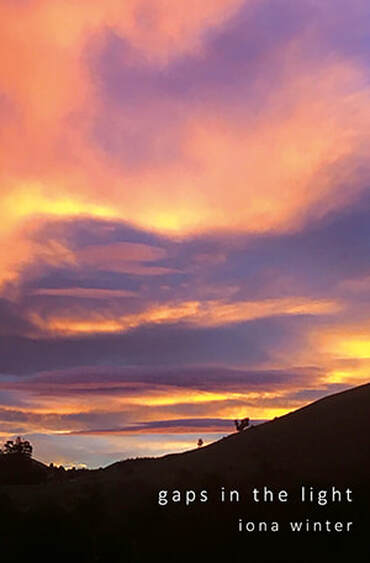
by Iona Winter
This is Iona Winter’s third collection of poetry. The dominant format is the prose poem, and short creative fiction, not the ‘traditional’ poetic set-up of structured four-line stanza and verse scheme. This allows her to better express her emotions as they splay from her soul, rather than having to measure them out, and thus to stall their delivery.
Accordingly, there is tremendous mamae, loss, hurt displayed throughout these pieces, an honesty of expression and sometime rage, that sets her work well away from the so-called majority mainstream stream of Aotearoa New Zealand poetry. Thematically and often, as noted above, formatically. As here, in the intense rave titled Gregorian, which is a dense paragraph of diatribe against the agents of cold capitalism,
I doubt you will ever
have a sense of life as it is for the minorities (who are really the majorities if you look at the world’s pyramid charts on the distribution of wealth); most of us struggle week to week, day to day, to survive everything you have created… (pp. 10-11)
Winter is unafraid to spew her innermost emotions, and the collection is stronger for this. Take, as just one example, the lengthy Forest Clearings, which is a fifteen-page paean of pain concerning a lover who has permanently absconded from the responsibilities of an intimate relationship. The poet doesn’t let lexical niceties get in the way of her anguish either,
fuck I missed you
long before you left (p. 75)
After all, as the poet stipulates elsewhere,
if you say what I write is too dark/too confronting/
too unpalatable
for your sugar coated tongues
then your alignment with shiny new things
discounts the rage of our mothers grandmothers
mothers… (from Learned it, p. 62)
Winter recognises too, the ‘shared history of women’ (from The wife of the tree-shaker, p. 59) and her entire collection is a litany of the several crises women have had and continue having to endure – splintered liaisons with thankless men, serious body maladies, the death of tamariki, are just some of such themes threaded powerfully through the collection.
In the end, though, love is the strength which allows Winter to survive,
I prefer to choose aroha. (from Natives, p. 22)
This concentration on candid reality is not to say she does not deal in lyrical niceties, for there are several fine examples of potent word play here. For example,
shame stained her face like port wine
to leach down her arms into fingertips (from Crosses, p. 69)
Throughout, she interpolates ngā kupu Māori as an intrinsic component of her existential Being, Again, she must do so, as she strives to fully express her innermost angst. There is a glossary provided at the end of the collection (given that I did note a couple of errors here, as for example the collocation of kāti ake ne in the glossary, yet kāti ake nei in the text. The latter is correct).
For as she captures in the piece titled Mōteatea,
The mōteatea enclosed in my chest aches to be released (p. 51)
Ultimately, too, it is grounding in our whenua which salves the winter of discontent here (no apologies for the pun either).
She needed to listen to the earth, to hear the secret things that lay buried beneath
Papatūānuku. (from Grannie, p. 38)
Given that we all must respect Earth and all her constituents – or else,
It makes me laugh, how we have treated our mother like shit for eons and nowadays can’t stop complaining because she’s finally retaliating. I always knew violating her would have consequences. (from Lost symphonies, p13)
Even more reason to appreciate the demanding cogency imbuing gaps in the light.
Tēnā koe mō tēnei pukapuka e hoa. Ko whakamiha ana ahau i tāu pononga, i tāu māia, i tāu kupu. He taonga iti tēnei.
Author: Iona Winter
Publisher: Ad Hoc Fiction
ISBN: 9781912095049
RRP: $27.99
Available: Ad Hoc Fiction; Amazon (paperback and ebook formats); Victoria University Books & Unity Books Wellington; libraries. Or contact the author.

 RSS Feed
RSS Feed
